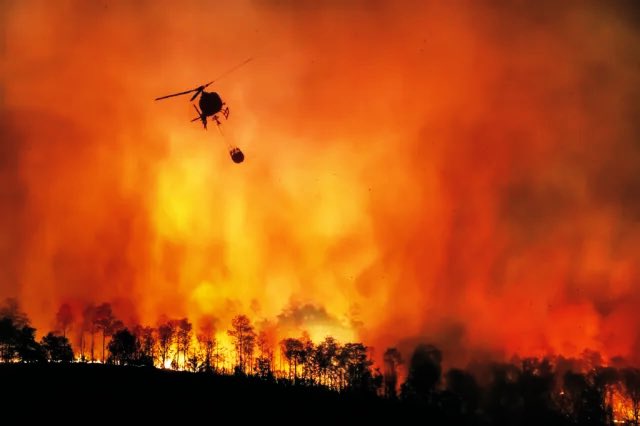This has undoubtedly been the most severe wildfire season in Canada’s history.
The Embassy of Qatar in Ottawa has cautioned its citizens in Canada to exercise caution as wildfires continue to flare up, especially in the Northwest Territories, British Columbia, and Alberta.
Canada has faced the burning of 13.7 million hectares due to wildfires this year. The previous record for a wildfire season was in 1989, when 7.6 million hectares were affected by fires.
While wildfires are frequently observed in the western provinces of Canada, this year has witnessed high occurrences with eastern provinces such as Nova Scotia, Quebec, and sections of Ontario have also been affected by uncontrollable wildfires.
In a statement, Qatar’s embassy said all Qatari nationals should follow the safety guidelines issued by Canadian authorities.
“The Embassy of the State of Qatar in Ottawa is advising all Qatari citizens in Canada to be extremely cautious due to the occurrence of wildfires, particularly in the Northwest Territories, British Columbia, and Alberta,” the statement said.
“The embassy strongly advises all Qatari nationals to adhere to the safety instructions provided by the Canadian authorities,” it added.
Nationwide, there are more than 1,000 ongoing wildfires, and around two-thirds of them are categorised as unmanageable, as reported by the Canadian Interagency Forest Fire Center.
As of Saturday afternoon, there were 236 active fires in the Northwest Territories and 380 in British Columbia.
The unprecedented wildfire season has led to the displacement of thousands of residents forced to evacuate their homes and migrate to nearby towns, provinces, and territories.
Canada’s Prime Minister Justin Trudeau announced on Sunday that Canada is deploying its military to address the rapidly spreading wildfires in British Columbia. The western province is currently contending with fires that have resulted in evacuation directives affecting over 35,000 individuals.
British Columbia has declared a state of emergency and enforced restrictions on non-essential travel. This measure aims to create available lodging for both evacuees and firefighting personnel.
In certain municipalities within British Columbia, the air quality index, which gauges significant pollutants such as particles generated by fires, exceeded 350, a level classified as “hazardous,” as indicated by Swiss air quality technology company IQAir.
Some experts attribute this collosal to climate change.
Since 2009, Canada has been directing a greater share of its budget towards extinguishing and containing wildfires, more so than putting it towards the funding allocated for maintaining its firefighting personnel and programme.







